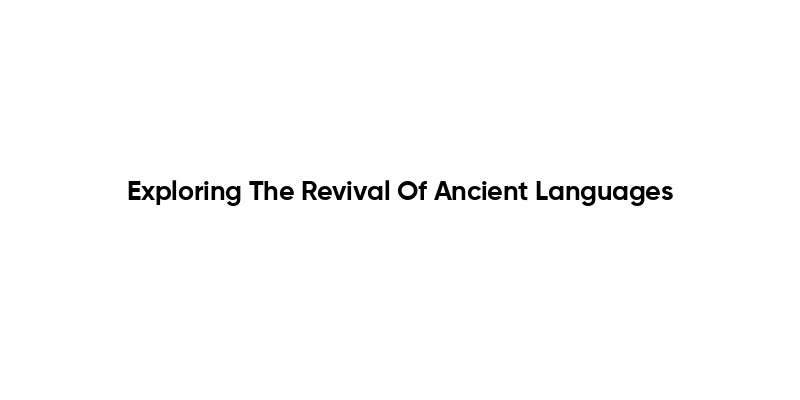The intersection of humanities and artificial intelligence is rapidly reshaping the landscape of education, prompting significant discussions about curriculum changes and the impact of AI on humanities disciplines. As technology weaves itself deeper into the fabric of academic life, questions arise about the future of education and how AI in higher education can enhance the learning experience. This shift challenges traditional methodologies, calling into question the role of humanists in a world increasingly dominated by algorithms and machine learning. While some fear that these advancements may undermine the core values of humanities, others see an opportunity to evolve and adapt, creating innovative pedagogical approaches. In exploring the nexus of technology and humanities, we must confront not only the challenges but also the immense potential that AI holds for enriching our understanding of the human experience.
At the confluence of liberal arts and cutting-edge technology lies the intriguing realm of humanities and artificial intelligence, a dynamic area ripe for exploration. As educational methodologies evolve, the synergy between digital tools and traditional humanistic inquiry raises pertinent questions about the role of AI in redefining educational paradigms. With the increasing integration of artificial intelligence in academic settings, scholars and educators are beginning to rethink the humanities curriculum, responding to the likely disruptions that these technologies will bring. Far from being adversaries, technology and the humanities can collaborate to foster a more profound engagement with critical cultural and intellectual questions. By embracing these tools, we not only safeguard the humanities but also enrich their capacity to foster critical reflection in a technology-driven world.
The Impact of AI on the Humanities Curriculum
The rise of artificial intelligence (AI) has undeniably transformed the landscape of education, especially in the humanities. Historically, the humanities curriculum has revolved around critical thinking, deep analysis, and understanding the human experience through literature, philosophy, and history. However, the introduction of AI technology into the classroom presents both challenges and opportunities. Students are increasingly finding that AI can provide immediate answers to complex questions, revealing a tension between traditional educational methods and the speed and efficiency of AI tools. As a result, educators are beginning to rethink what constitutes a valuable humanities education in an era where knowledge and information can be synthesized almost instantaneously.
Moreover, as AI algorithms develop, there is a pressing need for the humanities curriculum to adapt. This adaptation extends beyond simply incorporating technology into the classroom. It demands a re-evaluation of how critical thinking is taught and assessed. When students can receive comprehensive answers from AI within seconds, educators must ask: how can we foster analytical skills and creativity that AI cannot replicate? This challenge can invigorate the humanities by prompting a shift towards experiential learning and interaction, where students engage deeply with texts and contexts rather than relying solely on AI-generated summaries.
Future of Education: Adapting to a New Reality
The future of education, particularly in the context of humanities programs, hinges on our ability to embrace the changes brought about by AI. Traditional educational structures are being tested, and adaptability is becoming essential. Institutions must explore how to integrate AI tools without sacrificing the depth and richness of humanistic study. This means creating curricula that not only teach students how to use AI effectively but also emphasize understanding the ethical implications of its use in society. The conversation surrounding technology’s role in education is shifting from simply resisting AI technology to understanding its potential benefits and drawbacks in instruction.
Furthermore, the incorporation of AI into the learning process should foster a collaborative environment where human insights and AI capabilities coalesce for enhanced educational outcomes. Innovative teaching methods, including collaborative projects that pair AI tools with traditional pedagogies, can help students engage in critical examination of their own learning processes. This reflective practice can help students recognize the unique perspectives and creative thought processes that define humanity, distinguishing them from AI’s computational prowess. As we look forward, the future of education in the humanities will be characterized by a more integrated model that values both human insight and technological advancement.
AI in Higher Education: Revolution or Ruin?
AI’s integration into higher education has sparked a heated debate about whether it represents a revolution or a potential ruin for traditional learning environments. Proponents of AI argue that it enhances learning by providing students with tools they can utilize for research, writing assistance, and collaborative projects. However, skeptics raise concerns about over-reliance on AI, positing that it could undermine the very essence of learning—critical thinking and independent analysis. As universities grapple with these questions, they must consider the dual-edged nature of AI in the classroom, balancing technological integration with the preservation of scholarly rigor and depth.
The paradox is particularly evident in the humanities, where the subjective interpretation of texts and critical discourse lies at the heart of the discipline. AI can streamline research processes and facilitate access to information, but it cannot replace the nuanced understanding and emotional engagement that come from human interaction with complex texts. Therefore, higher education institutions need to create frameworks that encourage the use of AI as a complementary tool rather than a replacement for critical engagement. Continuous dialogue among educators, students, and technologists can help define a path forward that embraces innovation while safeguarding the foundational values of humanities education.
Humanities Curriculum Changes in the Age of AI
As AI technologies increasingly permeate academic institutions, it becomes imperative that we reassess and reformulate the humanities curriculum to stay relevant. Traditional courses focused on literature, philosophy, and art history must evolve to include discussions on the implications of AI on human thought, creativity, and culture. For instance, courses exploring the intersection of technology and narrative can probe into how stories are told in a digital age, considering contributions from both human writers and AI systems. These changes signal not only an adaptation to technological advancements but also a reinvigoration of the humanities to address contemporary issues.
Additionally, humanities programs may need to introduce new forms of assessment that recognize students’ ability to synthesize information from both AI and traditional sources. Engaging students in projects that blend creative expressions with AI’s capabilities can foster a deeper understanding of the subjects they study while also expanding their technical skills. These curriculum changes reflect a necessary shift in pedagogical methods, encouraging students to navigate a rapidly changing world with a critical eye, thus reinforcing the relevance of humanities amidst technological evolution.
Technology and Humanities: A Symbiotic Relationship
The relationship between technology and the humanities is increasingly viewed as symbiotic, where each influences and enhances the other. Advances in technology, especially AI, have the potential to revolutionize how humanities scholars conduct research, communicate their findings, and engage with broader audiences. For instance, digital humanities projects are enabling scholars to analyze vast amounts of data from historical texts or cultural artifacts in ways that were previously unimaginable. This not only broadens the scope of inquiry but also democratizes access to knowledge, allowing more individuals to engage with content that has traditionally been reserved for academia.
Simultaneously, the humanities provide critical perspectives that inform the ethical use of technology. As AI becomes more integrated into daily life, there is a growing necessity for scholars of the humanities to contribute to discussions about the moral implications of these technologies. By examining the societal impacts of AI, such as biases embedded in algorithms or challenges to privacy, the humanities can play a crucial role in shaping policies that govern technology’s development and deployment. This reciprocal relationship underscores the importance of integrating both technology and humanities in educational settings, as understanding and innovating in technology without ethical guidance can lead to unintended consequences.
Navigating AI Disruptions: Strategies for Educators
Amidst the urgent AI disruptions sweeping across campuses, educators are compelled to develop effective strategies to navigate these changes. Creating a safe space for discussions about AI’s capabilities and implications is vital. Educators should encourage students to wrestle with the challenges posed by AI, fostering an environment where they can express concerns and questions without fear of negative repercussions. By integrating AI discussions into the humanities curriculum, educators can help students develop critical analytical skills and engage deeply with the material, ensuring they are equipped to confront the complexities of an AI-driven world.
Moreover, embracing AI tools as part of the learning process can facilitate skill development that aligns with emerging job markets. Educators should explore innovative teaching methodologies that incorporate AI technology—like engaging students in projects that use AI tools to analyze texts or create interactive multimedia presentations. Such hands-on experiences can demystify the technology and build students’ confidence in utilizing these tools effectively, all while reinforcing the essential humanistic inquiry that lies at the core of education. Ultimately, these strategies can help bridge the gap between traditional humanities education and the evolving demands of the contemporary workforce.
The Ethical Implications of AI in Humanities Education
As AI technologies become more pervasive within educational settings, the ethical implications of their use in humanities education warrant serious consideration. Students are not just learning how to use AI tools but also grappling with the moral ramifications of their deployment. Key questions arise regarding authorship, originality, and authenticity—issues that are particularly pertinent in the humanities. Addressing these ethical concerns in the curriculum can instill a sense of responsibility among students, encouraging them to be mindful of how they engage with AI in their academic pursuits and beyond.
Furthermore, discussions of AI’s ethical implications should critically examine how algorithms can perpetuate existing societal biases and inequalities. Students must understand that while AI can be an effective tool for efficiency and accessibility, it is not infallible and can sometimes amplify harmful narratives. Integrative courses that explore the intersections of technology, ethics, and human experiences can prepare students to become informed and conscientious users of AI. By fostering a dialogue on ethical considerations in the context of technological advancements, humanities education can remain relevant and impactful in a rapidly changing world.
Preparing Students for an AI-Driven Future
In preparing students for a future increasingly influenced by AI, humanities education must emphasize adaptability and critical thinking. Students should be equipped with the skills necessary to navigate not only the changing landscapes of the job market but also the personal and societal implications of AI technologies. Fostering an interdisciplinary approach that combines technical literacy with humanistic inquiry can create a well-rounded educational framework. By encouraging students to explore how ethical considerations, creativity, and technology interrelate, educators can prepare them for a world where AI is integrated into various facets of life.
Moreover, experiential learning opportunities, such as internships and collaborative projects that involve AI tools, can further enhance students’ understanding and preparation for future careers. By engaging in real-world applications of their learning, students can connect theoretical knowledge with practical skills, empowering them to become proactive agents in shaping the future of AI integration in society. Ultimately, effective humanities education in the age of AI should embrace change while preserving the core values of inquiry, ethics, and the human experience.
Reshaping Humanistic Inquiry in the Age of AI
The advent of AI presents a unique opportunity to reshape humanistic inquiry, pushing scholars and students to rethink traditional frameworks of knowledge. As AI systems become more adept at synthesizing information, the humanities must reclaim its space in understanding the depths of human experience, emotion, and meaning—elements that AI is not capable of fully grasping. Emphasizing qualitative analysis and personal reflection becomes crucial. Courses should focus on offering insights into human nature, societal variations, and cultural contexts that AI simply cannot encapsulate.
Furthermore, exploring the limitations of AI can lead to enriching discussions about what it means to be human in today’s technological society. By highlighting the aspects of the human experience—empathy, consciousness, and ethical reasoning—that remain outside the realm of AI’s capabilities, educators can inspire students to engage in more profound inquiries. This reimagined approach can solidify the humanities’ position as a vital discipline, one that not only coexists with AI but also critically interrogates its impact on human life.
Frequently Asked Questions
What is the impact of AI on humanities education?
The impact of AI on humanities education is profound, leading to significant changes in curriculum design and teaching methodologies. AI tools offer new ways to engage with texts and concepts, transforming traditional learning into interactive experiences. This evolution encourages students to explore creative responses rather than rote knowledge, thus revitalizing the humanities.
How does AI influence the future of education in the humanities?
AI is reshaping the future of education in the humanities by introducing innovative learning tools and methods. These technologies can enhance personalized learning and provide access to extensive resources, enabling students to engage more deeply with their subjects. This shift fosters critical thinking and creativity, vital components of a humanities education.
What changes are occurring in the humanities curriculum due to AI?
Due to the influence of AI, humanities curricula are increasingly incorporating digital literacy, critical analysis of technology, and interdisciplinary studies. Programs now emphasize the integration of AI tools for research and creative projects, preparing students for a world where technology and humanities intersect.
What are the challenges of integrating AI in higher education humanities courses?
Integrating AI into higher education humanities courses presents challenges, including resistance from educators, student apprehensions about academic integrity, and the necessity of updating teaching practices. These obstacles must be addressed to fully leverage AI’s potential to enrich humanities education.
How is technology changing the landscape of the humanities?
Technology, particularly AI, is changing the landscape of the humanities by facilitating access to vast information networks and enabling new forms of scholarly communication. Digital tools allow for collaborative research and innovative modes of storytelling, broadening the audience and engagement with humanities content.
Why should we consider AI as a tool for humanities research?
AI should be considered a tool for humanities research because it can enhance analytical capabilities, allowing researchers to uncover patterns and insights within large datasets. By utilizing AI, humanities scholars can streamline research processes and focus on interpretation and critical discussions that enrich their fields.
Will AI replace traditional methods in the humanities?
AI is unlikely to fully replace traditional methods in the humanities; instead, it complements them. While AI can analyze data and generate content, the essence of humanistic inquiry—contextual understanding, emotional engagement, and ethical considerations—remains irreplaceable by machines.
What is the role of AI in shaping the future narrative of humanistic studies?
AI plays a crucial role in shaping the future narrative of humanistic studies by pushing the boundaries of how knowledge is created and shared. As tools for analysis and expression, AI technologies encourage new approaches to storytelling and deepen understanding of human experiences through diverse perspectives.
How can educators adapt to the changes brought by AI in the humanities?
Educators can adapt to the changes brought by AI in the humanities by embracing digital literacy, incorporating AI tools into teaching, and encouraging critical discussions about technology’s role in society. Professional development and collaborative learning among faculty will also facilitate this transition.
What opportunities does AI provide for students in the humanities?
AI provides numerous opportunities for students in the humanities, including enhanced research capabilities, personalized learning experiences, and access to diverse resources. It encourages students to engage creatively with content, fostering a deeper understanding and appreciation of humanistic themes.
| Key Point | Details |
|---|---|
| Impact of AI on Humanities Education | AI tools are disrupting traditional methods of teaching and learning in humanities, leading to a disconnection between students and these technologies. |
| Resistance to AI Integration | Universities are implementing strict policies against AI to maintain traditional academic integrity, which may hinder educational growth. |
| Students’ Perception of AI | Despite the availability of powerful AI tools, students are often afraid to utilize them due to potential consequences, resulting in a lack of engagement. |
| Potential for A.I. to Enhance Learning | AI can provide rich, personalized learning experiences, but also raises questions about the essence of humanistic education and understanding. |
| Return to Core Humanities Questions | With the rise of AI, humanities should focus on deeper existential questions rather than mere knowledge production, emphasizing the lived human experience. |
Summary
Humanities and artificial intelligence are at a pivotal intersection, where the survival of traditional educational paradigms is challenged by the capabilities of AI technologies. This evolving landscape calls for a fundamental reevaluation of what it means to educate in the humanities. While AI can automate the production of knowledge, it cannot replicate the human experience of understanding and existential inquiry. Thus, the future of the humanities may not lie in resisting AI, but in harnessing its potential to deepen our connection to the fundamental questions of existence, ultimately reinforcing the humanistic mission in a more profound way.



